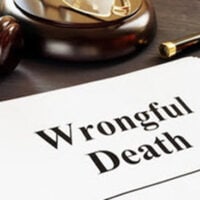
Among people under 44, violence, either intentional or unintentional, is the leading cause of death. Intentional (malicious) causes include murder and assault. Unintentional (non-malicious) causes include car wrecks, falls, and drug overdoses. Unintentional deaths aren’t accidental. People don’t accidentally overdose on prescription drugs, at least in most cases. Generally, a doctor wrote the prescription, a pharmacist filled the prescription, and a wholesaler sold the drugs to a retailer.
The chain of events that usually ends in a wrongful death makes these cases extremely complex. The web of liability, which normally involves two or more parties, makes them even more complex. Therefore, only the most experienced Columbia personal injury lawyer can obtain maximum compensation for families and survivors. This compensation usually includes money for pecuniary losses, such as the decedent’s final expenses, as well as lost future emotional and financial support.
Building a Case
This compensation is available if a Columbia personal injury lawyer proves negligence, or a lack of care, by a preponderance of the evidence, or more likely that not. The evidence in a wrongful death case usually includes witness statements, medical bills, and the police accident report. Sometimes, this evidence is flawed or unavailable. Witness statements are a good example.
We mentioned drug overdose deaths above. Occasionally, people use drugs in groups. However, they normally use drugs by themselves.
Credible witnesses are typically unavailable in both situations. Drug users, even if their testimony is accurate, are unreliable. A broken clock is unreliable, although a broken clock is accurate twice a day. If the victim was found dead, no one knows for sure what happened.
If one leg of the stool is weak, attorneys usually make the other two legs stronger. Expert witnesses review medical bills, police reports, and other documents. Then, they support or undermine these documents. Experts, like Board Certified doctors or coroners who carefully review the facts, are much more credible with jurors than the busy professionals who often rushed to generate the underlying document.
Once the evidence is in place, it’s much easier to identify the correct legal theory to present to the court. This theory is usually:
- Defective product (a design or manufacturing defect),
- Ordinary negligence (a lack of ordinary care), or
- Negligence per se (a violation of a safety law).
Special rules apply if the wrongful death was work or service-related. In all these cases, a third party, such as a negligent doctor, might be financially responsible for damages.
Settlement Talks
Wrongful death cases often settle faster than injury cases. There’s no need to wait for lengthy medical treatment to end.
However, issues regarding liability (legal responsibility) or damages (amount of compensation) often delay settlement. Drug overdose cases are an obvious example. Typically, these individuals voluntarily ingested drugs. Whether or not that act makes them legally responsible for the death is another matter.
Because of these delays, most wrongful death cases settle during mediation. A third-party mediator ensures that parties negotiate based on the evidence, which was discussed above. So, if the evidence is solid, the mediator almost always sides with survivors.
Rely on a Savvy Richland County Lawyer
Injury victims are entitled to significant compensation. For a free consultation with an experienced personal injury lawyer in Columbia, contact the Marc Brown Law Firm. We routinely handle matters throughout the Palmetto State.
Source:
cdc.gov/injury/wisqars/animated-leading-causes.html